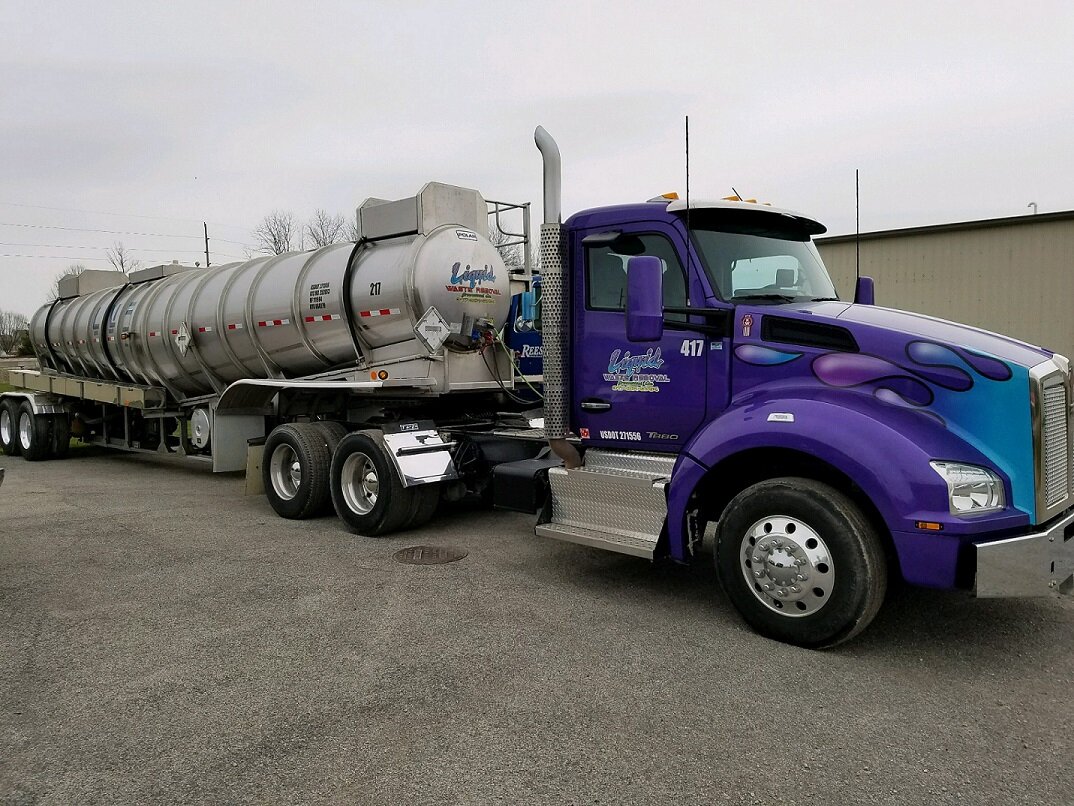Understanding the Comprehensive Refine of Fluid Waste Disposal: Ideal Practices and Environmental Effect Considerations
The administration of liquid waste disposal is a complex issue that calls for a comprehensive understanding of numerous finest practices and their associated ecological effects. From the kinds of fluid waste created to the techniques employed for collection, treatment, and last disposal, each action plays an important role in securing ecological communities and public wellness.
Sorts Of Fluid Waste
Recognizing the different kinds of liquid waste is vital for efficient monitoring and disposal techniques. Fluid waste can be generally classified into several types, each needing distinct handling and therapy techniques.
Industrial fluid waste usually has unsafe products, including heavy steels, solvents, and chemicals, produced throughout manufacturing processes. These wastes demand strict regulatory compliance to secure human health and wellness and the environment. Residential fluid waste mostly refers to wastewater generated from households, consisting of sewer and greywater, which, although less poisonous, can still posture substantial risks if incorrectly taken care of.
Agricultural fluid waste, including runoff from ranches, often contains fertilizers and pesticides that can cause ecological destruction if not dealt with appropriately. Medical fluid waste, generated from healthcare facilities, includes contaminated liquids such as physical liquids and chemicals, needing specialized disposal methods to stop infection and ecological contamination.
Last but not least, oil and grease waste, commonly produced by dining establishments and automobile markets, can trigger serious obstructions in drain systems otherwise handled properly. Comprehending these classifications assists in targeted methods for therapy, compliance with laws, and reliable disposal approaches, inevitably promoting ecological sustainability and public wellness safety.

Collection Methods
Effective collection approaches are essential for the correct administration of fluid waste, ensuring that it is gathered safely and effectively prior to treatment or disposal. Different techniques are used depending upon the sort of fluid waste created, the volume, and the certain features of the waste.
One usual approach is using specialized collection containers or sumps, which are made to catch liquid waste at the source. These systems typically include pumps that assist in the transfer of waste to larger storage containers or therapy centers. In addition, mobile collection systems equipped with vacuum cleaner modern technology are employed in circumstances where waste is generated intermittently or in hard-to-reach locations.
For commercial setups, closed-loop systems can properly reduce leakages and spills, allowing for the recovery and reuse of fluid waste. It is also important to educate personnel on correct collection methods to minimize dangers associated with hazardous materials.
Furthermore, applying regular maintenance timetables for collection tools makes sure optimal efficiency and safety and security. The combination of advanced tracking systems can improve collection effectiveness by offering real-time information on waste degrees and prospective threats. On the whole, effective collection techniques are fundamental to sustainable liquid waste monitoring practices.
Treatment Processes
Treatment procedures play a vital function in the monitoring of liquid waste, transforming potentially unsafe products into reusable sources or secure effluents - liquid waste disposal. These processes can be broadly categorized right into physical, chemical, and biological techniques, each tailored to resolve details pollutants existing in the waste stream
Physical treatment methods, such as sedimentation and filtering, job by getting rid of put on hold solids and particle issue. These techniques are typically the initial step in the therapy chain, properly decreasing the tons on subsequent processes. Chemical treatments entail making use of reagents to counteract dangerous substances, speed up heavy steels, or oxidize organic pollutants, therefore improving the security of the effluent.
Organic treatment processes, including activated sludge systems and anaerobic food digestion, maximize the all-natural capabilities of microbes to degrade raw material. These approaches are specifically reliable for wastewater containing eco-friendly contaminants. Advanced therapy technologies, such as membrane layer filtering and progressed oxidation processes, are progressively used to accomplish greater degrees of purification.
Integrating a mix of these treatment approaches not just guarantees conformity with regulative criteria yet likewise promotes ecological sustainability by recovering Web Site important sources from liquid waste.
Disposal Options
Exactly how can organizations ensure the secure and accountable disposal of fluid waste? Effective disposal alternatives are crucial for securing public health and wellness and the environment. The primary approaches include land disposal, therapy, and incineration followed by discharge into metropolitan wastewater systems.
Land disposal involves the mindful containment of liquid waste in assigned landfills, guaranteeing that it does not seep right into bordering dirt or water. Incineration, on the various other hand, topics liquid waste to high temperature levels, converting it right into ash and gases, which call for correct purification to lessen discharges. This technique appropriates for contaminateds materials that can not be dealt with with traditional methods.
In cases where liquid waste can be treated, organizations might choose for chemical or biological treatment processes to reduce the effects of unsafe elements before discharging the treated effluent right into community systems. This course normally lines up with governing requirements, making sure that the effluent fulfills safety and security requirements.
Inevitably, companies should perform thorough assessments of each disposal choice to establish its practicality, thinking about variables website here such as waste composition, regulatory compliance, and potential threats to health and wellness and the environment. By selecting ideal disposal methods, companies can contribute to a responsible waste administration strategy.
Environmental Impact
The environmental effect of liquid waste disposal is a critical consideration for companies seeking to lessen their ecological footprint. In addition, the discharge of without treatment or inadequately dealt with waste right into surface area waters can result in eutrophication, leading to oxygen exhaustion and the succeeding death of fish and various other microorganisms.

To minimize these effects, organizations should adopt finest methods such as carrying out strenuous waste treatment procedures, promoting recycling and reuse, and adhering to governing standards. By taking a proactive approach to fluid waste monitoring, entities can considerably minimize their ecological impact while supporting lasting advancement goals. Ultimately, a thorough understanding of the environmental effects connected with liquid garbage disposal is important for educated decision-making and responsible stewardship of natural sources.
Conclusion
Reliable administration of liquid waste is essential for guarding environmental integrity and public health. By adopting best methods in collection, disposal, and therapy, along with adherence to regulatory criteria, the capacity for damaging contamination of ecosystems can be considerably reduced. Continual improvements in technology and procedures add to sustainable waste monitoring efforts. Inevitably, an extensive understanding of fluid garbage disposal not just mitigates environmental effects yet also promotes a dedication to liable resource monitoring and environmental stewardship.
The monitoring of liquid waste disposal is a complex problem that requires a thorough understanding of various ideal practices and their linked environmental influences. From the kinds of fluid waste created to the techniques used for collection, therapy, and last disposal, each action plays an essential role in safeguarding ecosystems and public health and wellness.The ecological effect of liquid waste disposal is an essential consideration for companies looking for to lessen their eco-friendly impact. Ultimately, a detailed understanding of Learn More the environmental effects connected with fluid waste disposal is crucial for notified decision-making and responsible stewardship of all-natural resources.
Eventually, a comprehensive understanding of fluid waste disposal not only reduces environmental effects but also fosters a dedication to responsible source administration and environmental stewardship.